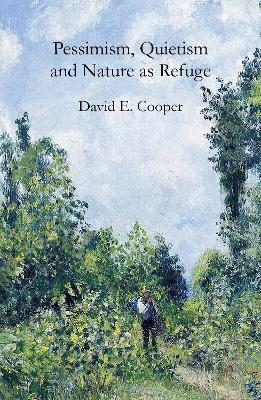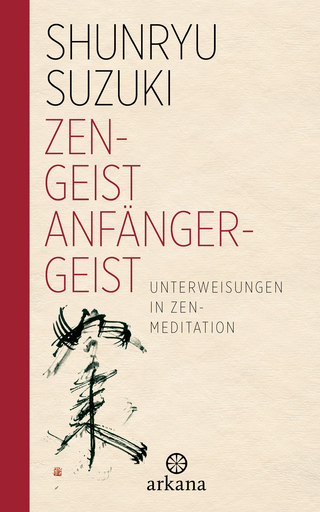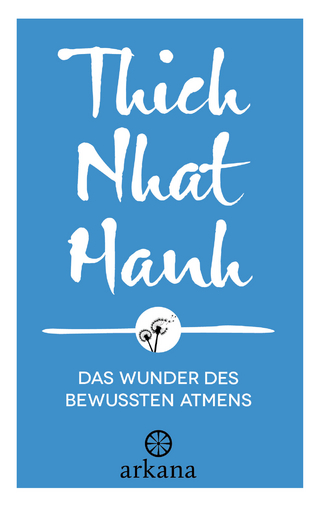
Pessimism, Quietism and Nature as Refuge
Seiten
2024
Agenda Publishing (Verlag)
978-1-78821-769-9 (ISBN)
Agenda Publishing (Verlag)
978-1-78821-769-9 (ISBN)
How do we, as individuals, accommodate a pessimistic and misanthropic view of the world? If the human condition is impossible to ameliorate, then how should we live? To bring about the wellbeing and happiness we seek, argues Cooper, requires a quietism that seeks refuge from the everyday human world in nature.
How do we, as individuals, accommodate a pessimistic and misanthropic view of the world? If the human condition is impossible to ameliorate, then how should we live? How do we bring about the wellbeing and happiness we seek in the face of such overwhelming evidence that our condition is and will remain very bad indeed and owes significantly to our own entrenched failings?
In this thoughtful and insightful book the philosopher David E. Cooper explores this fundamental dilemma. He rejects an activist commitment to radical improvement of the human condition, and instead advocates quietism as a way to live as well and as happily as we can. This quietist position, which draws on Buddhist and Daoist ideas as well as those from western philosophy, is supplemented by finding refuge from the everyday human world in a "place" both "other" and "better" than that world. Such places of refuge, Cooper argues, are best found in natural environments.
Refuge in nature, whether a garden or a wilderness, cultivates an attunement to, or a sense of, the way of things, and thereby invites assurance of being "in the truth" and the enjoyment that such assurance fosters. The quietist who finds refuge in nature lives as well as and as happily as anyone can do who accepts the negative verdict on the human condition.
How do we, as individuals, accommodate a pessimistic and misanthropic view of the world? If the human condition is impossible to ameliorate, then how should we live? How do we bring about the wellbeing and happiness we seek in the face of such overwhelming evidence that our condition is and will remain very bad indeed and owes significantly to our own entrenched failings?
In this thoughtful and insightful book the philosopher David E. Cooper explores this fundamental dilemma. He rejects an activist commitment to radical improvement of the human condition, and instead advocates quietism as a way to live as well and as happily as we can. This quietist position, which draws on Buddhist and Daoist ideas as well as those from western philosophy, is supplemented by finding refuge from the everyday human world in a "place" both "other" and "better" than that world. Such places of refuge, Cooper argues, are best found in natural environments.
Refuge in nature, whether a garden or a wilderness, cultivates an attunement to, or a sense of, the way of things, and thereby invites assurance of being "in the truth" and the enjoyment that such assurance fosters. The quietist who finds refuge in nature lives as well as and as happily as anyone can do who accepts the negative verdict on the human condition.
David E. Cooper is Emeritus Professor of Philosophy at Durham University. He has been a visiting professor at universities in the USA, Canada, Malta, South Africa, China and Sri Lanka. He has been president of the Aristotelian Society and chair of the Mind Association. His recent books include Senses of Mystery: Engaging with Nature and the Meaning of Life (2017) and Animals and Misanthropy (2018). He has also written a number of novels and short stories.
Prologue
1. The human condition
2. Amnesia and nihilism
3. Activism
4. Quietism
5. Modes of quietism
6. Refuge
7. Nature as refuge 1: "Another place"
8. Nature as refuge 2: "A better place"
9. Quietism, truth and mystery
| Erscheinungsdatum | 21.09.2024 |
|---|---|
| Verlagsort | Newcastle upon Tyne |
| Sprache | englisch |
| Maße | 129 x 198 mm |
| Themenwelt | Geisteswissenschaften ► Philosophie |
| Geisteswissenschaften ► Religion / Theologie ► Buddhismus | |
| Naturwissenschaften ► Biologie ► Ökologie / Naturschutz | |
| ISBN-10 | 1-78821-769-1 / 1788217691 |
| ISBN-13 | 978-1-78821-769-9 / 9781788217699 |
| Zustand | Neuware |
| Informationen gemäß Produktsicherheitsverordnung (GPSR) | |
| Haben Sie eine Frage zum Produkt? |
Mehr entdecken
aus dem Bereich
aus dem Bereich
Unterweisungen in Zen-Meditation
Buch | Hardcover (2024)
Arkana (Verlag)
20,00 €


